
Cat worming guide: How to treat and what to look for

Dr Lily Richards BSc (Hons) BVSc MRCVS
29 November 2023 | 4 minutes read
Worms are a common problem for cats. And no cat parent wants their favourite feline to be infested with wriggling nasties
Expert vet Dr Lily Richards explains how to spot the signs of worms in cats, how to treat them, and ways to prevent getting them.
- How do cats get worms?
> Can indoor cats get worms? - How do I know if my cat has worms?
> What do cat worms look like? - How to treat worms in cats
- How to prevent your cat from getting worms
> How often to worm a cat - Other questions about cat worming
> Can you worm a pregnant cat?
> Can humans get worms from a cat?
> Should I worm or flea my cat first?
> How long should you wait between worming and flea treatment for cats?
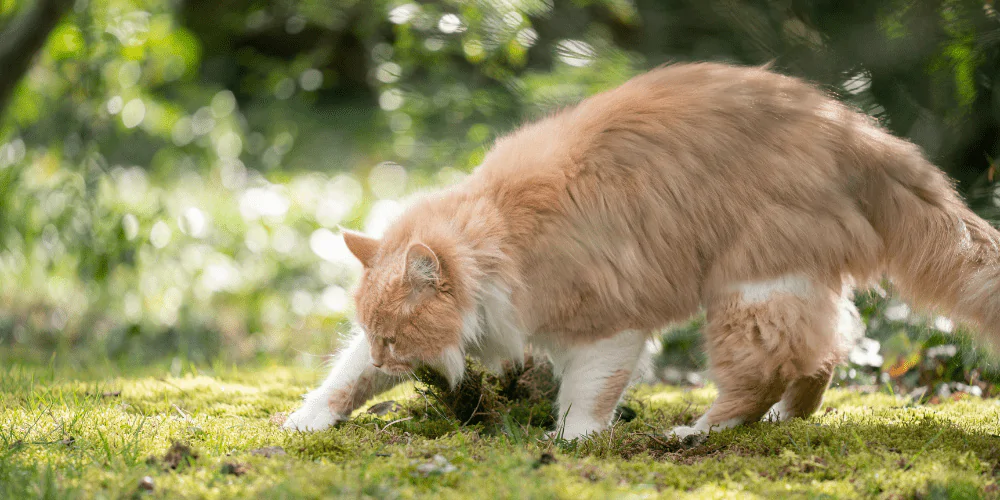
How do cats get worms?
Cats get worms by eating their eggs and they come across these in different ways, the most common being:
- Infected prey such as mice or birds
- In dirt and the faeces of infected animals
- Accidentally eating fleas – which carry the larvae – while grooming
Kittens can also get worms through their mum’s milk if she’s infected.
> Can indoor cats get worms?
You might be surprised to learn that indoor cats can still get worms.
Though their risk is lower than a cat who goes outside, they can still pick up the parasite by coming into contact with infected animals or objects. People can bring in fleas – which carry tapeworms – into the home and infect indoor cats.
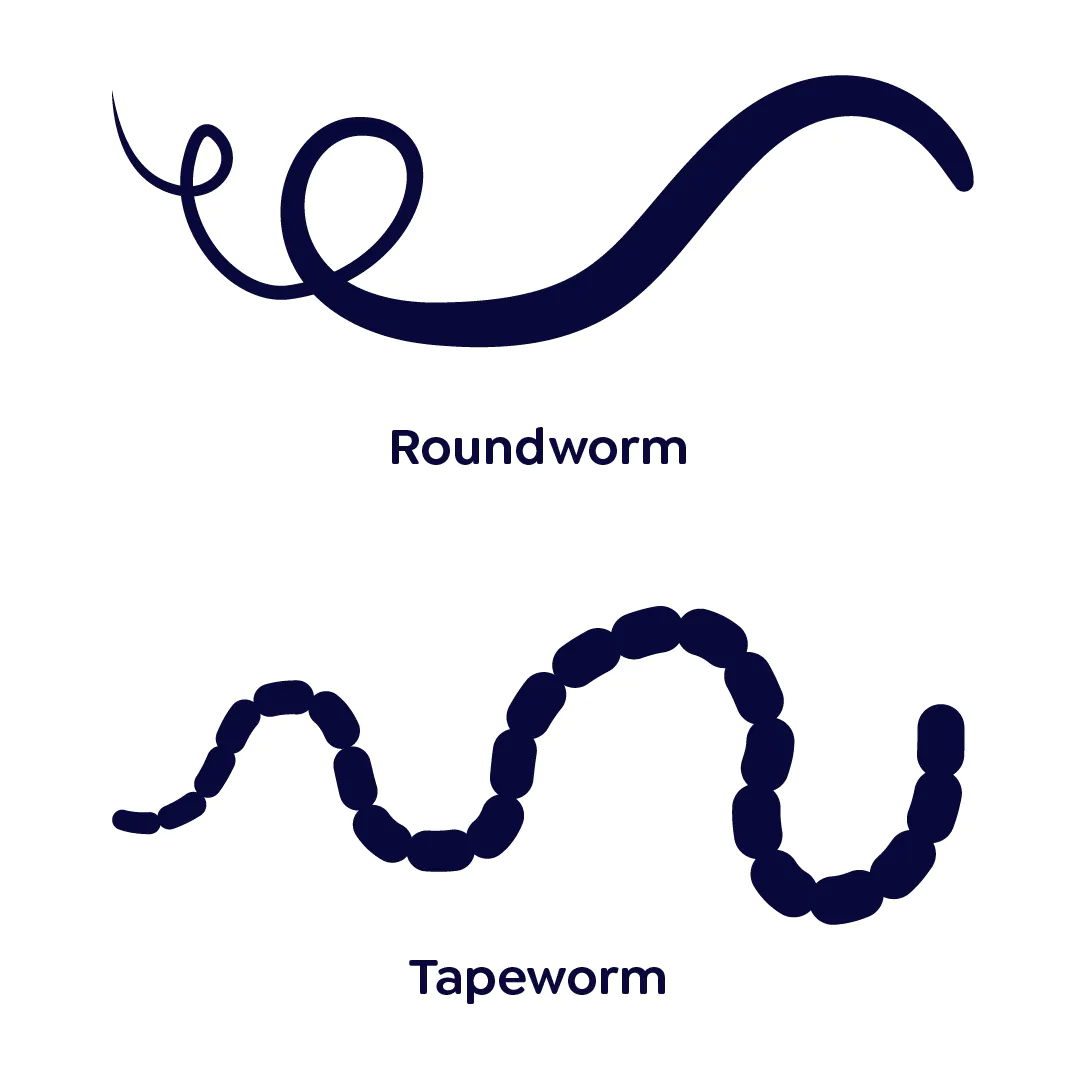
How do I know if my cat has worms?
Some cats don’t show any symptoms so it can be tricky to tell if your feline has a worm infestation. A few signs to look out for include:
- Visible worms in your cat’s faeces, vomit, or bedding
- Diarrhea or constipation
- Weight loss despite having a good appetite
- A pot-bellied appearance (which tends to be seen more in kittens)
Take your cat to the vet if you notice any of these symptoms.
> What do cat worms look like?
Cats are most likely to pick up one of two different types of worms:
- Roundworms – these look like spaghetti and can be seen in your cat’s faeces or vomit
- Tapeworms – these resemble small grains of rice and are often found around your cat’s bottom or in their bedding
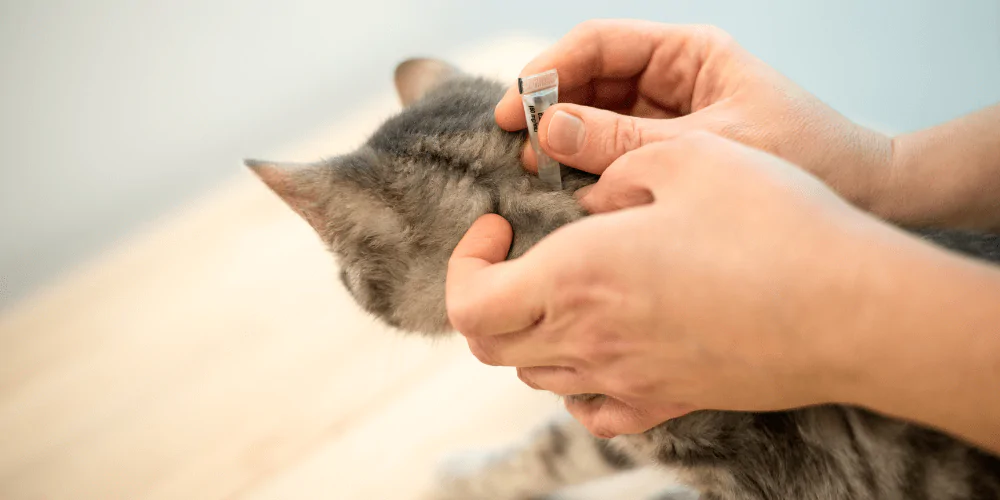
How to treat worms in cats
Treating a worm infestation is usually quite straightforward and involves giving your cat a tablet or spot-on liquid treatment prescribed by your vet.
The best way to stop your cat from getting worms is to keep up with a regular worming treatment. And don’t forget a consistent flea treatment as fleas can pass tapeworm eggs onto your kitty.
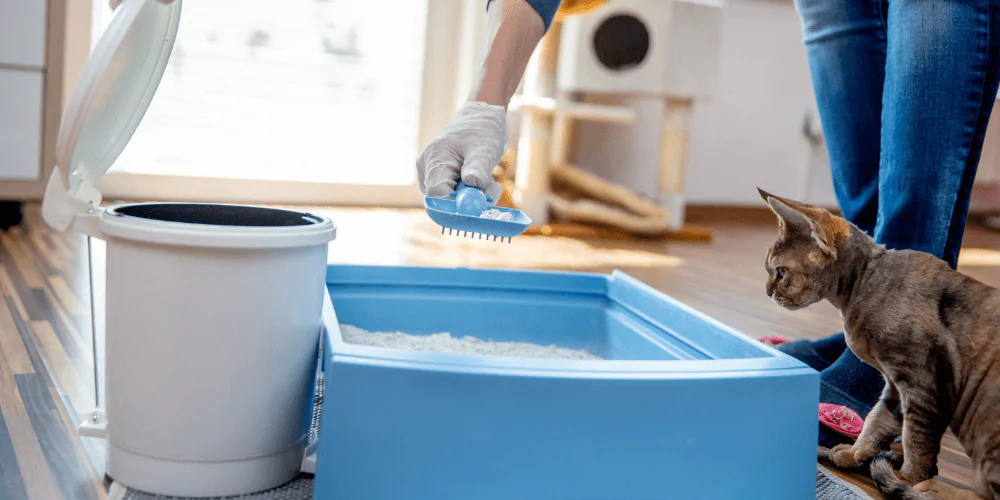
How to prevent your cat from getting worms
Vets will advise on the right regular worming treatment for your individual feline, which can come as a tablet or spot-on solution.
Some other ways you can protect your cat against worms are:
- Keep your home clean and hygienic using pet-safe cleaners
- Empty and clean litter boxes daily
- Do regular flea and worming treatments for other animals in the household
> How often to worm a cat
How often you worm your cat depends on their age and lifestyle:
- Kittens – Every two weeks until they’re 12 weeks old, then once a month up to six months old.
- Adult cats – At least every three months or more often if at higher risk. This will depend on your cat’s lifestyle, whether they are indoor or outdoor, and if they are avid hunters.
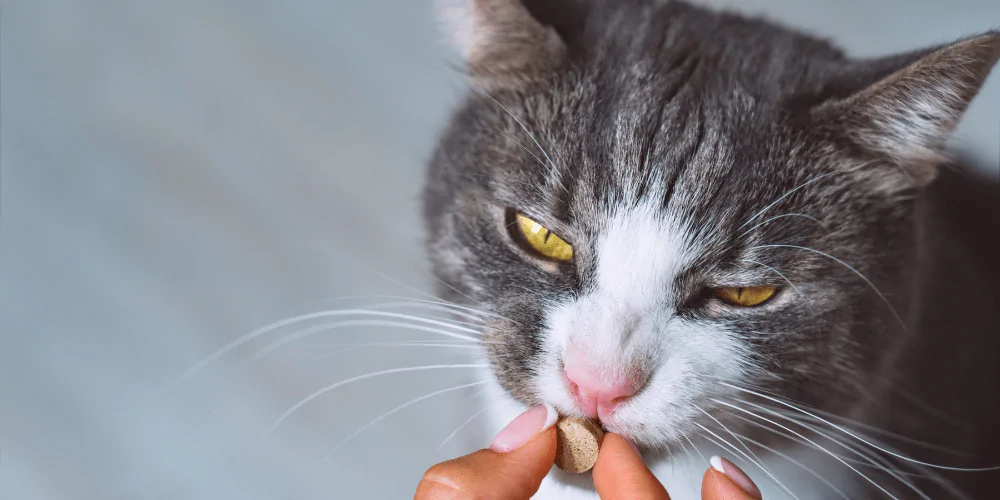
Other questions about cat worming
> Can you worm a pregnant cat?
It’s best to worm your cat just before mating. But there are safe treatment options available if you need to worm your cat while she’s pregnant.
Speak to your vet who will advise on a treatment plan to suit your expecting feline.
> Can humans get worms from a cat?
Catching worms from your cat isn’t common but it can happen, so remember:
- Always wash your hands thoroughly after cleaning your cat’s litter tray
- Keep up with your cat’s regular worming treatment
- Cover up any children’s sand play pits so your cat doesn’t use them as a toilet
> Should I worm or flea my cat first?
It’s normally recommended to treat for worms before fleas as some deworming medications also target fleas. Your vet will let you know in which order to give your cat their treatments.
> How long should you wait between worming and flea treatment for cats?
Flea treatments can usually be given to your cat a few days after their worming treatment. But this does depend on the individual medication used so follow your vet’s instructions.
Look after your favourite feline with flexible cat insurance from Petsure.


